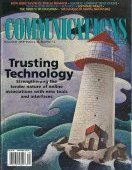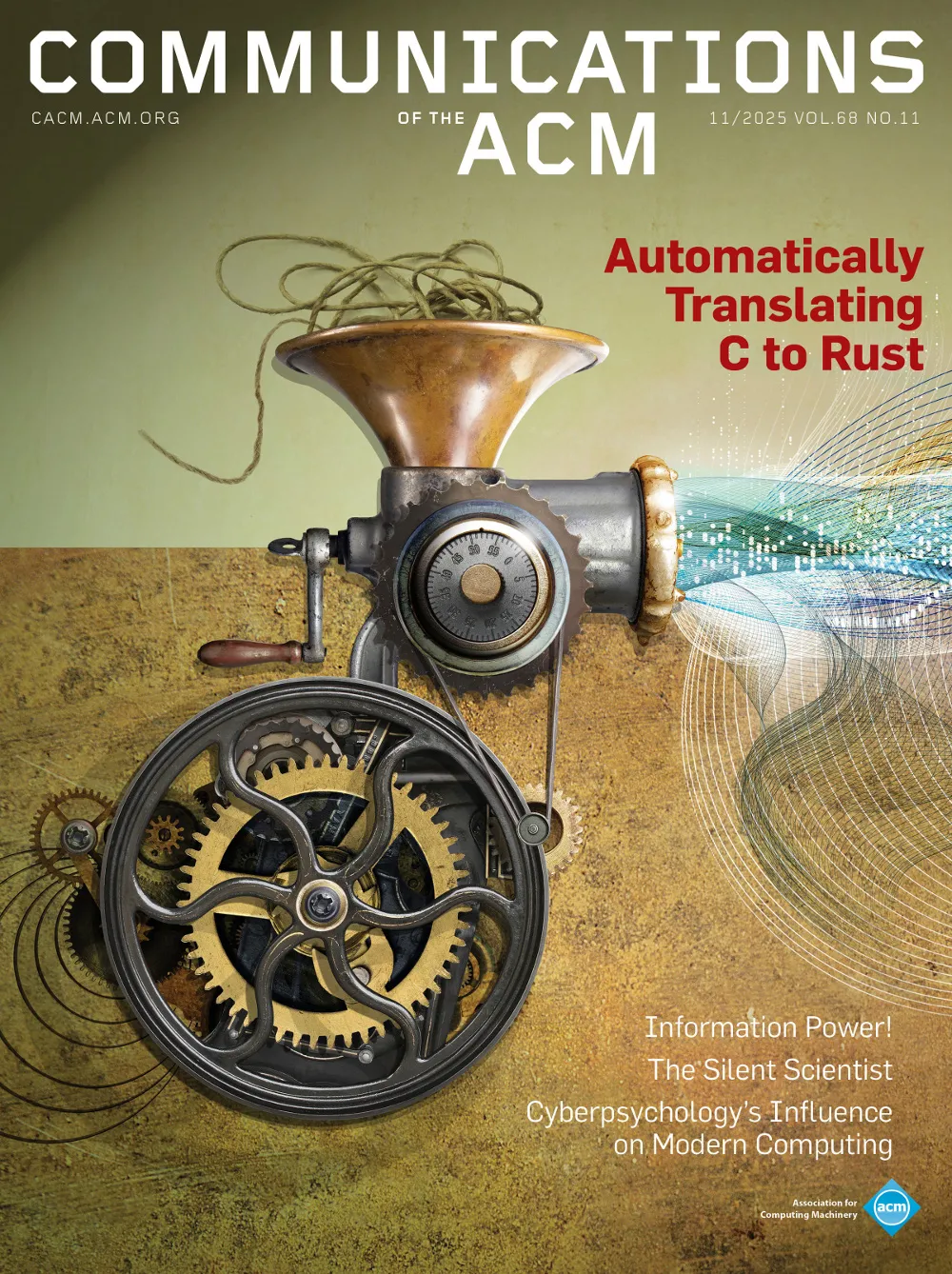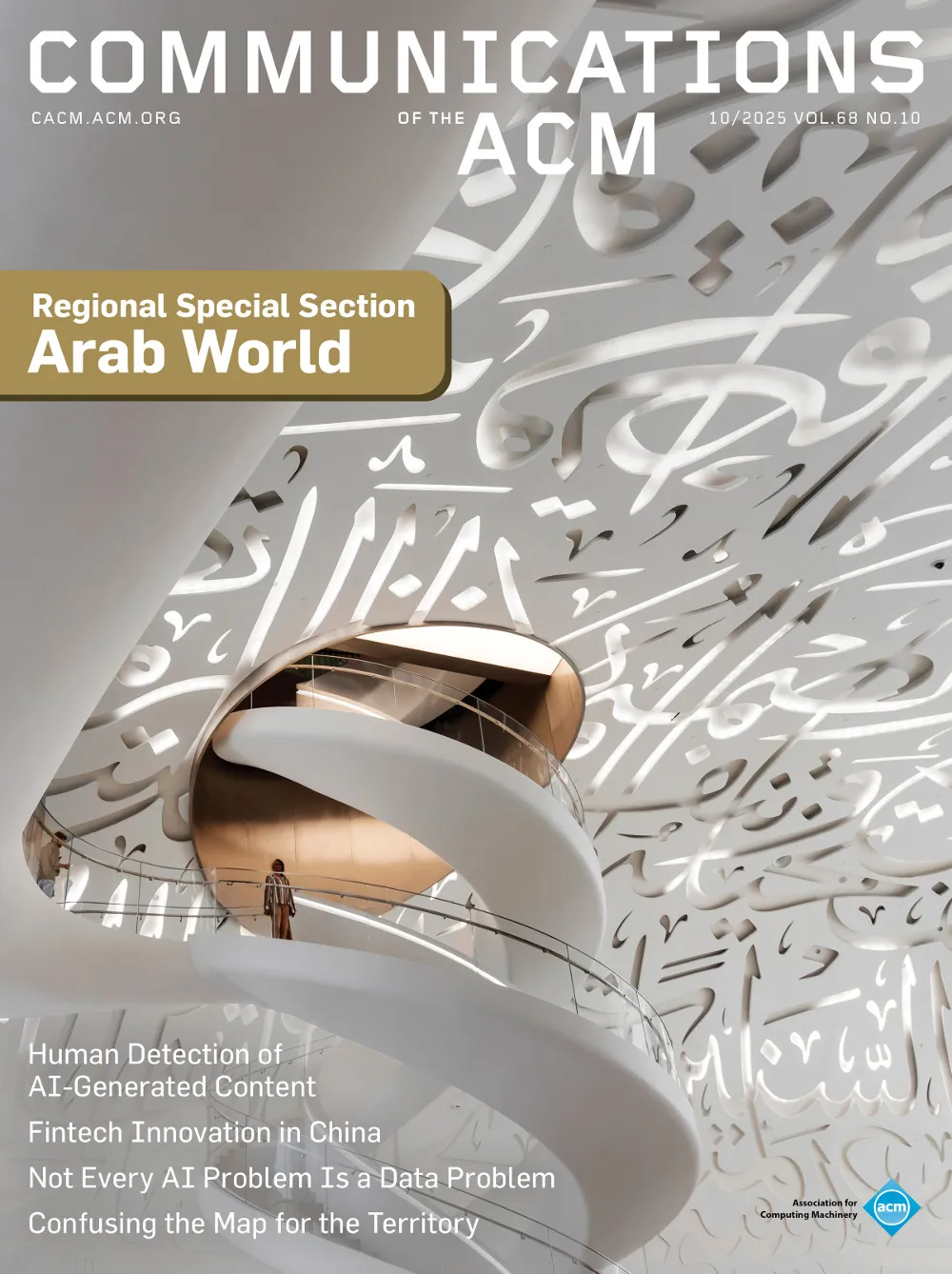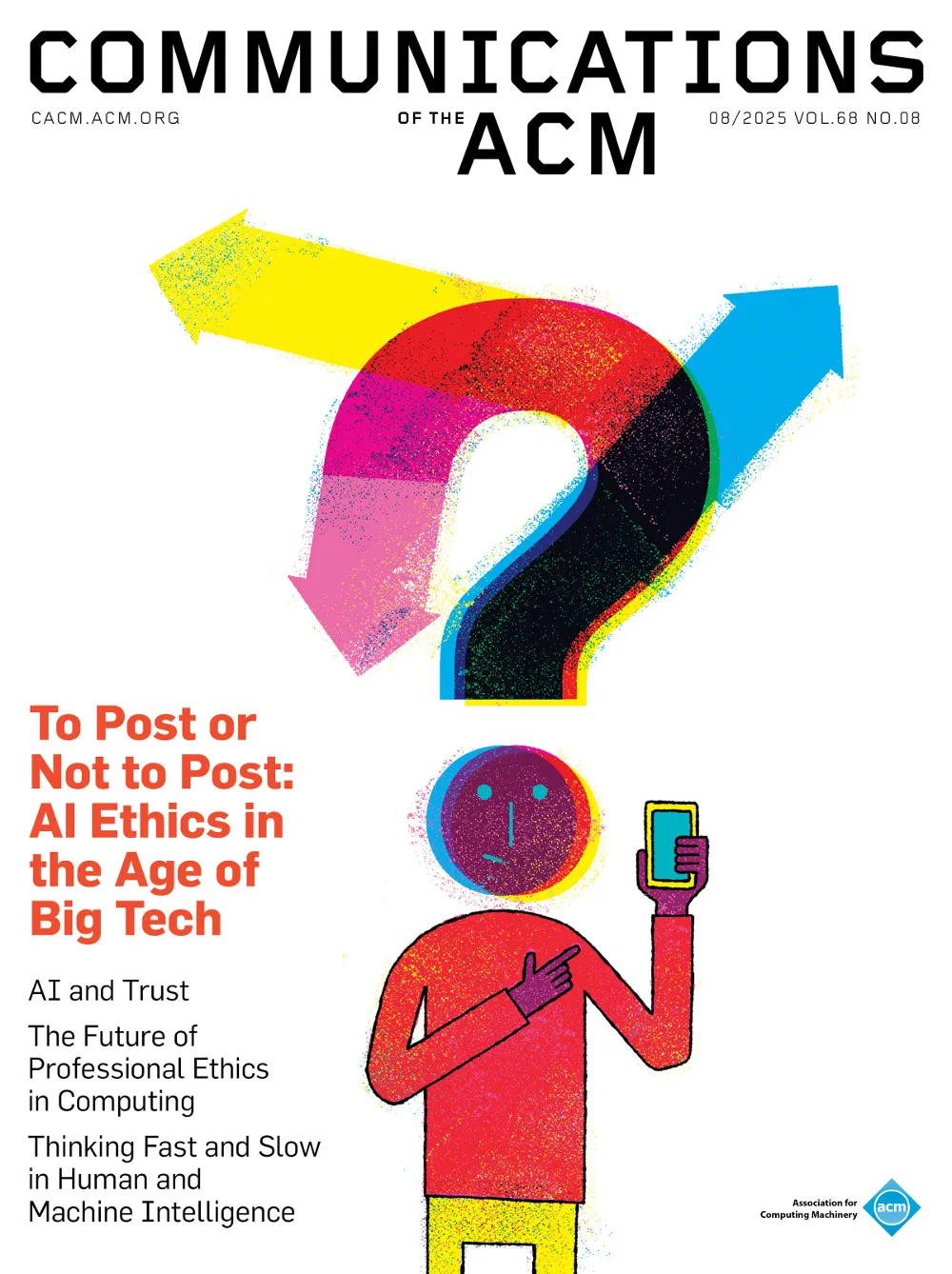December 2000 - Vol. 43 No. 12

Features
We all have our own personal benchmarks when it comes to trusting technology. It’s that moment when we may hesitate, if not refuse, to perform a function electronically by weighing the convenience over the possible negative consequences. Sometimes the decision is based on simple fear of the unknown, sometimes on real, deep-rooted experience or concern. […]
A new study claims exposure in early education to computers can harm children’s ability to reason, imagine, and play, and calls for legislators to refocus early education toward a program that supports strong bonds with adults, time for spontaneous play, a curriculum rich in the arts, and hands-on interaction. The Alliance for Childhood, Washington, DC, […]
Forum: Software Piracy Is Not Just Economics Anymore
In "Global Software Piracy: You Can’t Get Blood Out of a Turnip," (Sept. 2000, p. 82) Gopal and Sanders seem to state the obvious, albeit backed up with impressive facts and figures. To anyone living in countries where the income is significantly below that of the U.S., there can be no doubt that the high […]
Log on Education: the Three Ts of Elementary Education
The John Glenn Commission on Education pushes for the biggest change in public education in 200 years.
Sharing Standards: Standardizing Software Projects
Deploying organizational standards across the life of a project is one of the single biggest competitive advantages.
Viewpoint: Signing Your 011001010
In recent years we have seen everything from sex to taxes go online. The Internet revolution may now be claiming a new victim, as the handwritten signature gives way to a powerful new digital way of signing. A digital signature is a specific example of a signature transmitted in electronic form. Simple examples of electronic […]
Trusting Technology: Introduction
How can technology be engineered to inspire user trust? How can businesses, consumers, and individuals employ that trust—without destroying it—for the sake of their human relationships?
Trust can be cultivated to enhance our personal and social lives and increase our social capital.
The depth of participants' trust and trustworthiness depends on how the medium transmits and translates the social experience, including its often unviewable cultural and personal cues.
For buyers and sellers alike, there's no better way to earn one another's trust in online interactions.
External Manifestations of Trustworthiness in the Interface
Humans gradually learn to trust embodied interface agents that use the same social cues people use, including interaction rituals like small talk.
Designing Trust Into Online Experiences
These principles and their guidelines enhance cooperative behaviors and win user/customer loyalty by giving assurances, references, certifications from third parties, and guarantees of privacy and security.
The Internet neither destroys nor creates social capital. Sometimes trust matters, sometimes it doesn't in our technology-mediated relationships.
Exploring the barriers to efficient e-commerce and the critical role of government.
Trust Requirements in E-Business
A conceptual framework for understanding the needs and concerns of different stakeholders.
Software Piracy: a View from Hong Kong
Software piracy accounts for billions of dollars in lost sales. But for many nations, U.S. price tags make legal ownership impossible. Here's how one thriving city perceives the act of piracy.
Technical Opinion: on the Perils of Programming
Viewed as an art and a science among professionals and academics, programming retains its significance in any teaching or training program in the field of computing.
Inside Risks: Semantic Network Attacks
On August 25, 2000, Internet Wire received a forged email press release seemingly from Emulex Corp., saying that the Emulex CEO had resigned and the company’s earnings would be restated. Internet Wire posted the message, without verifying either its origin or contents. Several financial news services and Web sites further distributed the false information, and […]



